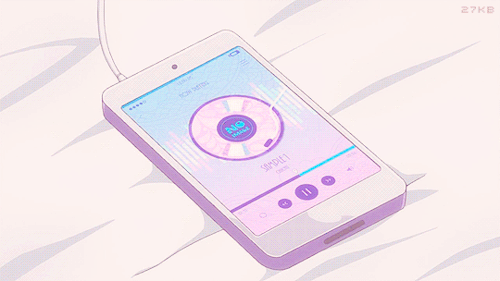the roast of collin yost: commentary or cyberbullying?
- faith kimberly

- May 2, 2018
- 3 min read
Updated: May 11, 2018

When Collin Yost left for work on August 28th, 2017, he was a relative unknown. When he returned home that night, he was trending on Twitter – for all the wrong reasons.
A marine scientist by trade, the 26-year-old Yost had long used writing as an “outlet for his anxiety.” He started sharing poems on Tumblr and later migrated to Instagram, where he amassed a modest following. In January 2017, he self-published his book, A Shot of Whiskey and a Kiss You’ll Regret In the Morning. Enclosed are the turbulent romps of an aspiring intellectual bad boy, complete with tattoos and cigarettes and descriptions of his (usually disrobed) female partners as whores. Despite this questionable content, Yost’s collection was stocked at Powell’s bookstore, a favorite hangout for Portland’s creative types. One day, artist and fellow Izzy Leslie picked up a copy. She didn’t like what she saw.
To Leslie, Yost’s pretentiousness, affinity for cliché, self-absorption and unabashed objectification of women was emblematic of longstanding literary bias. Privileged men with sexist tendencies are celebrated and added to the canon, and female writers are overlooked. After taking in masterful lines like “sex burns around one hundred calories on average,” “she likes my tattoos…I don’t’ care,” and the edgy “I’m a poet - I mold words and do lines,” Leslie decided to tweet her displeasure. With four words – “this guy is a PUBLISHED author” - @badplantmom had deployed the ever-eager keyboard vigilantes. That night, Yost opened his phone to hundreds of notifications and messages. His friends told him not to look, but the bell icon's allure proved overpowering. Some of the quips were biting, but par for the twitter-roasting course – “who hurt him?”, “can’t tell if I’m crying bc it’s so funny or so sad.” Others were nastier – “did he fuck the cigarettes? I feel like he fucked the cigarettes” and the inevitable “kill yourself, pig.”
The ensuing melee, accelerated by mob mentality, inspired parody accounts and exposes on “Brobert Frost,” Portland’s newly-minted, most hated poet. Izzy’s Facebook account was hacked, and despite his benign public response to the fiasco, Yost reportedly liked posts calling Izzy a “stupid whore.” Further dissection of the feud, which fizzled out in a few days, would read like the typically concerned think piece about how our smartphones are disconnecting our frontal cortex from our twitter fingers. But this entry is not about gender politics or call-out culture or #slacktivism. All parties in this situation were – to borrow a term from the Tumblrverse –being problematic. W.H. Bro-den’s depictions of women were painfully lacking in humanity, nuance, and self-awareness. The same, however, could be said of his critics’ frenetic dog-piling masquerading as 'critique'.
We return, then, to my instapoetic dichotomy: authors may post on public channels and publish books, but their output is akin to a private diary. This raises the stakes of sharing – affirmation can be invaluable, and criticism deeply damaging. As constant contact becomes the norm, researchers are delving into the complexities of online self-disclose and identify development. Psychologist Elias Aboujaoude studies how habitual technology use spurs the development of “E-personalities.” These angels-on-shoulders and evil twins allow us to cope with the wild wild web, but they may influence real-life behavior as well. When repeated, virtual habits re-orient impulse control, re-evaluation of consequences, and previously established behavioral norms. At their worst, E-personalities can magnify narcissism and aggression – two traits apparent in both Yost and his opponents.
Instapoets, readers, and their respective E-personalities continually negotiate the divide between real and online worlds, messily defining and transgressing boundaries of appropriateness and self-disclosure. Lang Leav, Rupi Kaur, and social media darling Orion Carloto accept the spotlight, but numerous peers exhibit shyness and an aversion to their (mostly) accidental fame. Christopher Poindexter and Tyler Knott Gregson are open about their insecurity. Atticus wears a mask at all public appearances, and R.M. Drake spends his free time painting anonymous poems on neighborhood sidewalks. Despite her success, self-proclaimed “quiet poet” Nayyirah Waheed has revealed little about her background, and Alfa, a retired medical professional, types anonymously from rural Kentucky. Instapoets are – for the most part – amateurs, and the same vulnerability and imperfections that render them “real” and “relatable” can also lead them into equally human mistakes. Their audiences are equally fallible, liking and lauding one moment, mocking and meme-ing the next. When rapt by our respective screens, both creators and consumers can forget that we are – for the most part - just ordinary, messy, uniquely problematic people. Before adding to the livid mudslinging justifying itself as 'literary criticism,' we should perhaps press refresh, power down, and live and let live.
(Collin Yost, who strategically re-branded himself as “Portland’s Most Hated Poet,” still posts his musings on Instagram.
The smokes, beanie-sporting selfies, and sketches of scantily clad women remain; his bio reads “the internet loves to hate me”).







Comments